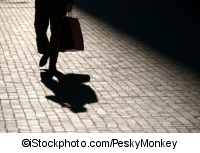Many restaurants in Germany offer a free item on their menu. It is usually hidden away at one end of the children’s section and is called a “Räuberteller”.
It really is free and almost looks out of place being listed with € 0,00.
But what is it?

Put quite simply, a Räuberteller is a plate and a set of cutlery. The word literally translates as “thief’s plate” and that is exactly what it is.
For small children who would not manage even a child’s portion of food (or prefer something else than the few items on offer), they can use the plate to eat small portions of food from their parents, grandparents, or other people who are in the restaurant with them.
This not only reduces the cost of the meal, but it also saves on waste if they are lacking in appetite.
 Bei “Are You Being Served?” werden drei verschiedene Arten von Humor eingebaut, nämlich Visueller Humor: hier ist der Witz quasi zu sehen, weil in diesem Moment einfach etwas lustiges passiert. Missverständnisse: hier werden zum Beispiel Anweisungen gegeben, die haargenau durchgeführt werden, jedoch nicht unbedingt so wie es der Chef vorsah. Doppeldeutigkeit: das von der Figur gesprochenen Text hat an sich eine ganz harmlose Bedeutung, jedoch kann in den Köpfen der Zuschauer ganz anders interpretiert werden.
Bei “Are You Being Served?” werden drei verschiedene Arten von Humor eingebaut, nämlich Visueller Humor: hier ist der Witz quasi zu sehen, weil in diesem Moment einfach etwas lustiges passiert. Missverständnisse: hier werden zum Beispiel Anweisungen gegeben, die haargenau durchgeführt werden, jedoch nicht unbedingt so wie es der Chef vorsah. Doppeldeutigkeit: das von der Figur gesprochenen Text hat an sich eine ganz harmlose Bedeutung, jedoch kann in den Köpfen der Zuschauer ganz anders interpretiert werden. Am 7. November 1974 wurde das Kindermädchen seiner Kinder – Sandra Rivett – ermordet aufgefunden und an wenig Stunden später verschwand Lord Lucan spurlos. Es gibt einige Theorien was geschehen sein soll und in wie weit er in diesen Mordfall verwickelt sein soll. Er wurde jedoch im Juni 1975 von einer Untersuchung durch Geschworene als Mörder von Frau Rivett deklariert.
Am 7. November 1974 wurde das Kindermädchen seiner Kinder – Sandra Rivett – ermordet aufgefunden und an wenig Stunden später verschwand Lord Lucan spurlos. Es gibt einige Theorien was geschehen sein soll und in wie weit er in diesen Mordfall verwickelt sein soll. Er wurde jedoch im Juni 1975 von einer Untersuchung durch Geschworene als Mörder von Frau Rivett deklariert.